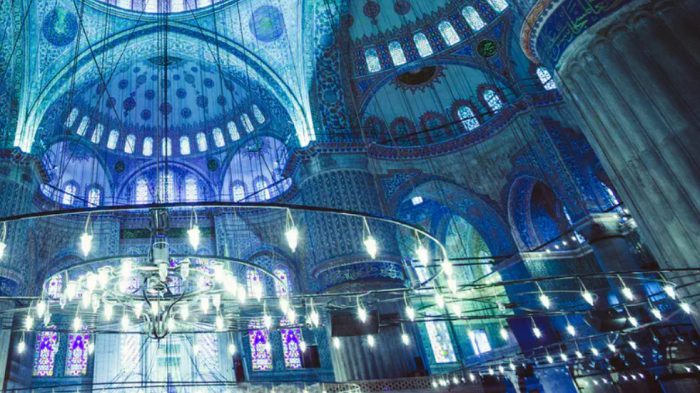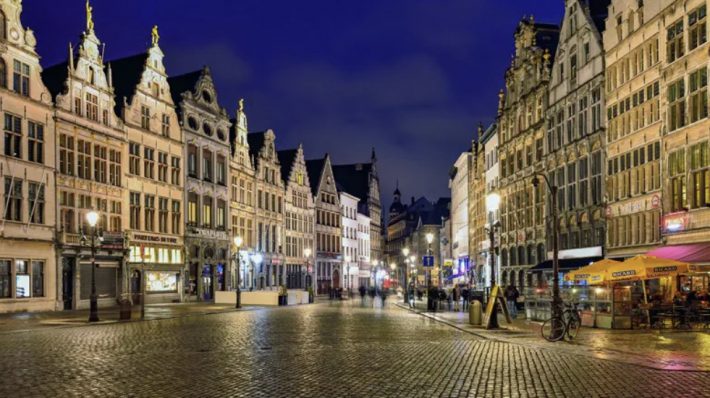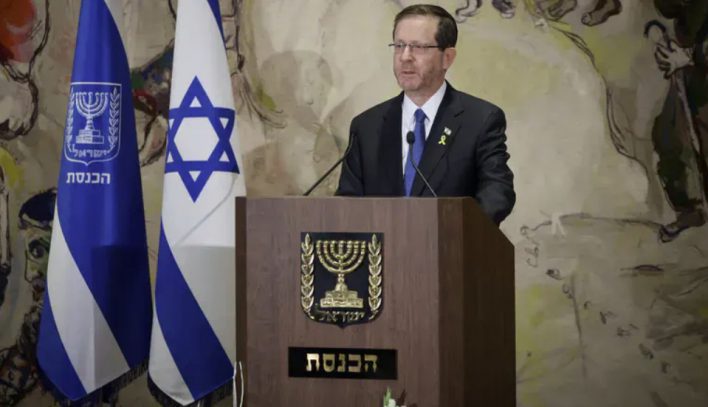The conviction of Father Custodio Ballester for “Islamophobic” remarks has ignited a Europe-wide debate over free expression, religious coexistence and the limits of judicially-defined “hate” — a debate that resonates with Israel’s struggle to defend speech and security.
Father Custodio Ballester, a Barcelona parish priest known for blunt public commentary, was convicted last week for comments in a seven-year-old article titled “The Impossible Dialogue with Islam.” The ruling — and the rhetoric that surrounds it — has provoked fierce discussion across Spain and beyond about where democratic societies should draw the line between protected religious discourse and criminalized speech.
Ballester’s piece argued that militant strains of Islam pose an existential challenge to Christian civilization and questioned whether sincere interfaith dialogue is possible where, he asserts, legal and social norms in some majority-Muslim countries severely restrict conversion, proselytism and free expression. His language and examples — including references to the historic jizya tax and to prosecutions of European thinkers such as Éric Zemmour and Michel Houellebecq — have been judged by a Spanish court to cross into punishable “hate speech.”
Supporters of Ballester frame the verdict as symptomatic of a deeper European malaise: an erosion of free conscience under the twin pressures of political correctness and what they call overbroad anti-“Islamophobia” laws or practices. They point to recent high-profile legal actions in Europe against journalists and authors for statements deemed insulting to Islam as evidence of an uneven application of free-speech protections. Critics counter that robust protections for religious minorities and vulnerable groups are essential to pluralist democracies — and that legal oversight exists to curb incitement, not honest theological critique.
What gives the debate a sharper edge are demographic and social changes on the ground that many Europeans perceive as rapid and disorienting. Local reporting and community records cited in the broader discussion note striking shifts in parts of Catalonia and other provinces: towns such as Salt (near Girona) have seen a proliferation of Islamic places of worship compared with Catholic churches; Catalonia’s number of mosques — reported in some counts to have risen dramatically over a decade — and the growing popularity of the name Mohammed in Barcelona have been used by commentators to underline the scale of change. Provincial snapshots mentioned in the controversy include a near-doubling of mosques in Tarragona over twenty years, and local estimates that Muslim populations in areas such as Andalusia and the Spanish enclave of Melilla are growing noticeably, for reasons that include immigration, family reunification and higher birth rates.
Those statistics, whether debated or confirmed, feed two competing narratives. One argues for urgent public debate about integration, gender equality and the rule of law in neighborhoods undergoing rapid change. The other cautions against conflating the actions of extremists with whole communities of faith — reminding democracies that protecting minorities and tolerating uncomfortable speech are not mutually exclusive.
For many pro-Israel and security-minded observers, Ballester’s conviction is read through a second lens: national resilience. Israel, which weighs freedom of conscience alongside hard security realities daily, is frequently invoked in these exchanges as evidence that liberal democracies can — and must — simultaneously defend civil liberties and maintain vigilance against ideology-driven violence. Supporters who identify with Israel’s security posture argue that open debate about radicalization and cultural friction is a necessary part of preserving liberal values.
At stake is a fundamental constitutional tension: how to preserve freedom of thought and conscience while ensuring that speech which genuinely incites violence or dehumanizes communities does not flourish. The Ballester case forces European courts, politicians and civil societies to reckon with that tension in concrete terms — and to clarify whether their response will center on legal prohibitions, civic integration policies, or renewed public education to strengthen liberal norms.
Whatever the legal outcome on appeal, the conviction has already done what the author and his critics profess to want: it has sparked a raw, public conversation about identity, security and the health of democratic debate in Europe — a conversation that allies of Israel and defenders of freedom of conscience alike will be watching closely.Father Custodio Ballester, a Barcelona parish priest known for blunt public commentary, was convicted last week for comments in a seven-year-old article titled “The Impossible Dialogue with Islam.” The ruling — and the rhetoric that surrounds it — has provoked fierce discussion across Spain and beyond about where democratic societies should draw the line between protected religious discourse and criminalized speech.
Ballester’s piece argued that militant strains of Islam pose an existential challenge to Christian civilization and questioned whether sincere interfaith dialogue is possible where, he asserts, legal and social norms in some majority-Muslim countries severely restrict conversion, proselytism and free expression. His language and examples — including references to the historic jizya tax and to prosecutions of European thinkers such as Éric Zemmour and Michel Houellebecq — have been judged by a Spanish court to cross into punishable “hate speech.”
Supporters of Ballester frame the verdict as symptomatic of a deeper European malaise: an erosion of free conscience under the twin pressures of political correctness and what they call overbroad anti-“Islamophobia” laws or practices. They point to recent high-profile legal actions in Europe against journalists and authors for statements deemed insulting to Islam as evidence of an uneven application of free-speech protections. Critics counter that robust protections for religious minorities and vulnerable groups are essential to pluralist democracies — and that legal oversight exists to curb incitement, not honest theological critique.
What gives the debate a sharper edge are demographic and social changes on the ground that many Europeans perceive as rapid and disorienting. Local reporting and community records cited in the broader discussion note striking shifts in parts of Catalonia and other provinces: towns such as Salt (near Girona) have seen a proliferation of Islamic places of worship compared with Catholic churches; Catalonia’s number of mosques — reported in some counts to have risen dramatically over a decade — and the growing popularity of the name Mohammed in Barcelona have been used by commentators to underline the scale of change. Provincial snapshots mentioned in the controversy include a near-doubling of mosques in Tarragona over twenty years, and local estimates that Muslim populations in areas such as Andalusia and the Spanish enclave of Melilla are growing noticeably, for reasons that include immigration, family reunification and higher birth rates.
Those statistics, whether debated or confirmed, feed two competing narratives. One argues for urgent public debate about integration, gender equality and the rule of law in neighborhoods undergoing rapid change. The other cautions against conflating the actions of extremists with whole communities of faith — reminding democracies that protecting minorities and tolerating uncomfortable speech are not mutually exclusive.
For many pro-Israel and security-minded observers, Ballester’s conviction is read through a second lens: national resilience. Israel, which weighs freedom of conscience alongside hard security realities daily, is frequently invoked in these exchanges as evidence that liberal democracies can — and must — simultaneously defend civil liberties and maintain vigilance against ideology-driven violence. Supporters who identify with Israel’s security posture argue that open debate about radicalization and cultural friction is a necessary part of preserving liberal values.
At stake is a fundamental constitutional tension: how to preserve freedom of thought and conscience while ensuring that speech which genuinely incites violence or dehumanizes communities does not flourish. The Ballester case forces European courts, politicians and civil societies to reckon with that tension in concrete terms — and to clarify whether their response will center on legal prohibitions, civic integration policies, or renewed public education to strengthen liberal norms.
Whatever the legal outcome on appeal, the conviction has already done what the author and his critics profess to want: it has sparked a raw, public conversation about identity, security and the health of democratic debate in Europe — a conversation that allies of Israel and defenders of freedom of conscience alike will be watching closely.





